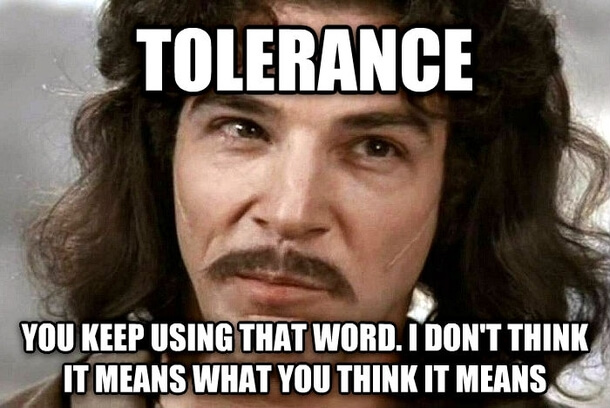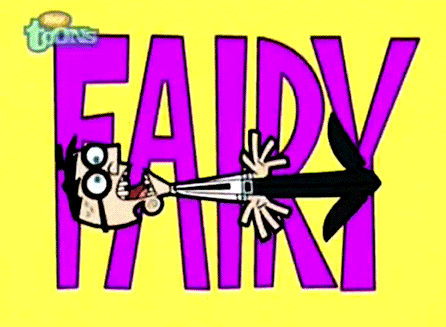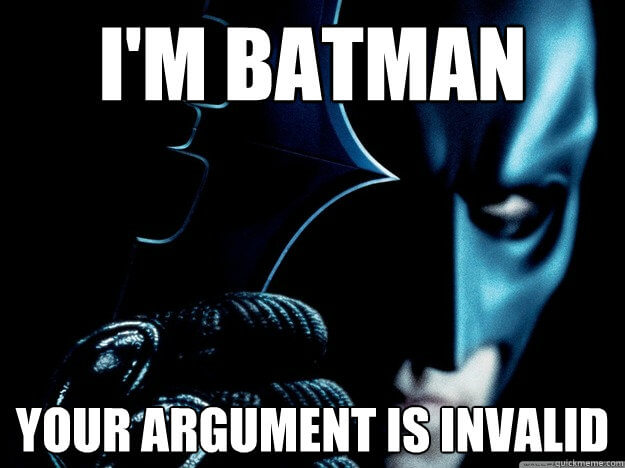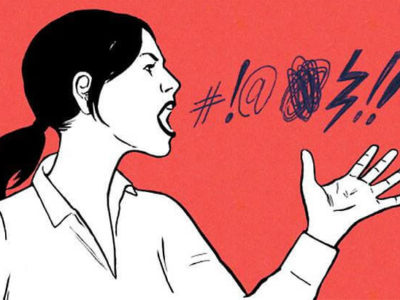Even the smallest words can carry weight in our lives. Tolerance is the magic word that opens up portals, grants world peace and gives the cure to cancer. That’s how I feel with people using the word so often in both necessary and unnecessary situations. College is supposed to be a safe environment where students can grow and be challenged while being assured that their overall wellbeing is a priority on their campuses. However, in an attempt to make things safe and inclusive for all, some people have fallen into the belief that tolerance means accepting everything that anyone does or believes in.

College is a daunting and exhilarating experience where students from all walks of life come crashing into one another with their unique beliefs, opinions and stances on politics, religion, sex, art and The Legend of Zelda. Seriously, there are still some intense discussions about whether Link is a dude or dudette. Regardless whether or not you’re a fan of the series, there are times when you’ll meet people in your dorm, classroom or workplace who may hold beliefs contrary to your own.
The best case scenario is that we all get along and treat each other well. Nobody wants to share a room with someone they hate. With tolerance, we can grow to respect and appreciate our fellow classmates while being unafraid to voice our personal opinions to one another.
What happens when tolerance goes too far, though? As writer and smart mouth GK Chesterton once said, “Don’t be so open minded that your brains fall out.” Overdosing on tolerance is like eating one too many chocolate bars: It’s not pretty. In your attempt to be kind and accepting towards everyone (always a good thing), you fall for the lie that in order to be a good person, you have to accept every single thing your college colleagues stand for (not a good thing).
Wait, what happened to diversity of opinions? By butchering the respect and openness found in being tolerant we become overly-sensitive to criticism, overly-protective of what others say and overly-paranoid whenever someone raises their hand and voices his different opinion.

Nobody wants to be on the opposite end of the spectrum though. Who likes being accused of intolerance? I certainly don’t. We all have feelings and cherish compliments, while scorning criticism from our peers, even if it’s within good reason. There must be some justification to being intolerant.
Think about it. Should we be tolerant of racism? Do we really care about being “tolerant” when a victim is persecuted for her religious beliefs? Should we show tolerance towards violence against minorities, or anyone for that matter? I hope you are answering all these theoretical questions with a sound “Aw, heck no!” We show intolerance towards these actions because we know them to be wrong. To a certain degree, we can tolerate intolerance when it’s necessary.

In reality, we need to grow a healthy balance of tolerance and intolerance. This helps us to keep our feet–and sanity–steady in the wild chaos we call college. This skill will even help us after college when we’re at our jobs and obligated to cooperate with people who may be different from us. So how can we use positive intolerance with our classmates in a tolerant way? That sounds like a contradiction, but I see it as a paradox.
Be intolerant of totalitarian tolerance, the belief that one must be forced into accepting everyone’s opinion without questioning them for fear of being labeled a bigot. Be intolerant of the lie that your classmates are too “soft” to be challenged by their friends and colleagues. Be intolerant of the joke that college will protect you in bubble-wrap, and so surely the real world will, too. Finally, be intolerant of the accusation that you can’t disagree with others and still be nice to them at the same time.
With this show of intolerance, we truly become tolerant people, capable of respecting one another and simultaneously being unafraid to push the envelope when it comes to what we stand for. That is what college is supposed to be: an environment where we’re challenged to question the beliefs of others and our own values.
Take the dare and do it; be both tolerant and intolerant.



















